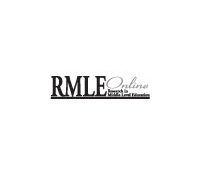eric.ed.gov har udgivet: The purpose of this curriculum guide is to help the first grade teacher in his endeavor to fulfill his teaching responsibilities. Space is provided for teacher’s additions, deletions, notes and criticisms which will be useful when the guide is revised. The guide is sectioned according to subject matter (English, math, science, and social studies). Vertical columns are arranged for each subject area relating the curriculum concepts to: curriculum performance objective, bilingual, suggested curriculum teaching methods, career awareness, character education, and audio-visual and resource materials. The guide closes with a ten page section of audio-visual source information. (DS) Link til kilde
Like this:
Like Loading...
eric.ed.gov har udgivet: Piggybacking is a new approach to a university-level methods class in math, science, and social studies in early childhood education developed at the McKay Campus School in Fitchburg, Massachusetts. This approach seeks to improve on methods courses that ask college students to pretend they are teaching young children or pretend they are being instructed. The piggybacking approach is a cooperative learning methodology in which first graders are paired with undergraduate early childhood education students. These pairs, or “piggybackers,” work together to teach and learn hands-on math, science, and social studies techniques. By working with first graders and approaching education from their perspective, pre-service teachers learn the importance of using real world experience to teach math, social studies, and science. (MM) Link til kilde
Like this:
Like Loading...
eric.ed.gov har udgivet: Critical thinking, along with other skills, is included as a basic skill in the constructive education program that has been in use in Turkey since 2005. Therefore, a large increase has been observed in studies on critical thinking skills since 2005. In this frame, the present study was conducted in order to systematically examine research papers on critical thinking skills in terms of several variables published between the years 2005 and 2014 in national journals which are indexed by SSCI and the ULAKBIM social sciences database. In this context, a total of 93 articles from 29 different journals were analyzed using the NVivo 10, SPSS 18, and Microsoft Excel programs and performing content analysis which is widely used in qualitative studies. According to the findings, a large… Continue Reading →
Like this:
Like Loading...
tandfonline.com har udgivet en rapport under søgningen “Teacher Education Mathematics”: Abstract This special issue contains three papers on evolutions in logic during the so-called ‘post-medieval’ period (roughly the years 1450–1700). The papers discuss the following topics: (1) traditions of logic in the British Isles during the sixteenth and seventeenth centuries; (2) approaches to validity in medieval and post-medieval logic; and (3) scholastic and humanist interpretations of the prologue to Galen’s Art of Medicine. All papers provide an original contribution to research on post-medieval logic, which to date is still in the early stages. Together they testify to the great diversity of the discourse on logic during the period under consideration, something that has not been sufficiently appreciated in the scholarship. Link til kilde
Like this:
Like Loading...
eric.ed.gov har udgivet: TOPS, a set of materials designed to improve problem solving instruction, was evaluated in two large urban school districts from Fall 1980 to Spring 1982. At Site A, the program was implemented at the middle school level (grades 5-8), where most mathematics teachers were specialists; they accepted the problem-solving activities after some initial hesitation. At Site B, the program was implemented in grades 3-8, though most often in grades 4 and 5, usually by teachers who were not mathematics specialists. They varied in their belief that the activities would improve problem-solving ability, and, even though in year 2 they were allowed to develop lessons involving problem-solving strategies tied more closely to textbooks and tests, problem solving was never completely accepted by all teachers. At Site A, 80… Continue Reading →
Like this:
Like Loading...

tandfonline.com har udgivet en rapport under søgningen “Teacher Education Mathematics”: ABSTRACT ABSTRACT Using data from the 2010 National Association of Education Progress eighth grade test of U.S. history (NAEP-US8), the current study explored the intersections among traditional indicators of teacher quality and competing dimensions of quality teaching on students’ history knowledge. Findings indicated that eighth grade social studies teachers with academic backgrounds in history and secondary education were associated with increased use of disciplinary practices valued by the field (i.e., reading across multiple source materials, discussion, and writing in the content area) and performance-based assessment. Furthermore, when accounting for both teacher characteristics and instructional decision-making, alternatively licensed middle grades teachers were associated with lower average student achievement on NAEP-US8. Holding other conditions constant, eighth grade teachers with backgrounds in secondary… Continue Reading →
Like this:
Like Loading...
tandfonline.com har udgivet en rapport under søgningen “Teacher Education Mathematics”: Link til kilde
Like this:
Like Loading...
tandfonline.com har udgivet en rapport under søgningen “Teacher Education Mathematics”: Abstract This article examines the relationship between two fields of study, Italian Studies and Digital Humanities (DH), by documenting projects that employ digital or computational methods in the study of Italian language, literature, history, and the arts. In a complementary fashion, the author outlines the analytical questions of Italian scholars that have potential to advance inquiry in DH. A final section is devoted to contextualizing DH within the practice of Italian Studies at the institutional, program, and department levels by drawing on research of course offerings and a survey circulated in August 2017. The overall finding is that the area of overlap between DH and Italian Studies is intellectually rich, with increasing (yet still sparse) opportunities to develop specialization in… Continue Reading →
Like this:
Like Loading...
eric.ed.gov har udgivet: The purpose of this technical report is to summarize the research methodology of the Novice Teacher Study (NTS) strand of the Teacher Quality Partnership (TQP) research. The Ohio TQP has embarked on a series of research studies to learn more about the characteristics of effective teachers and to identify the patterns of teacher performance in both novice and experienced teachers that commingle to enhance student achievement at different grade levels, in different subjects, and with different types of students. The report is divided into three sections: a brief description of TQP methodology and data sources; a detailed discussion of findings, and conclusions and directions for future research. In preparing this technical report, we drew from artifacts documenting the research processes; from regional and national presentations; and from… Continue Reading →
Like this:
Like Loading...
eric.ed.gov har udgivet: Lack of researcher consensus on how to measure disadvantaged students’ access to effective teaching has made it challenging for practitioners to draw lessons from the data. This brief aims to help policymakers understand the emerging evidence by synthesizing findings from three peer-reviewed studies that collectively span 17 states. The studies provide two lessons: (1) on average, disadvantaged students received less effective teaching than other students, equivalent to about four weeks of learning for reading and two weeks for math, or about 2 to 4 percent of the student achievement gap between these groups; and (2) access to effective teaching for disadvantaged students varied across districts, with a statistically significant difference between more and less disadvantaged students’ access in some districts and no statistically significant difference in access… Continue Reading →
Like this:
Like Loading...



